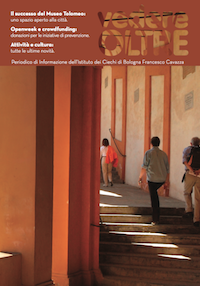It is said that Orpheus, a Greek poet who lived before Homer, had the gift of enchanting every creature with the sound of his lyre. It was Apollo himself who gave him the instrument that the Muses taught him to play. Thus he created divine harmonies, charming every living creature. Even stones or other inanimate objects followed him in order to listen to the sound of the golden lyre. With his art, Orpheus could pacify the waves of a stormy sea and the devastated spirits of sailors, as he did during the expedition of the Argonauts. Settling in Thrace, he married the nymph Eurydice. One day, while walking with her companions, Eurydice was pursued by Aristaeus, a shepherd. In her effort to evade him, she stepped on a snake, she was bitten and died. Orpheus, devastated, started playing such a mournful melody on his lyre that the nymphs and gods wept in pain. They advised him to search for Eurydice in the Underworld and bring her back. Passing through the Gates of the Underworld, his singing and his melody touched even the hearts of the God of the Underworld, Hades, and his wife, Persephone. Even the Furies could not withhold their tears. So, he was allowed to take Eurydice back to the surface, but under one condition. He was told, however, to walk in front of her and not look at her until both had reached daylight. On their way back, though, Orpheus was wondering whether Hades had tricked him. So, when he reached the top and had just stepped into the daylight, he turned his head. As Eurydice had not yet reached the surface, she immediately disappeared back in the Underworld. The desperation following Eurydice's death lead to Orpheus adopting a contemptuous and outrageous attitude towards the women of Thrace who tore him into pieces by revenge in bacchic orgies. After his death, Muses buried his bones in Libethra on the slopes of Olympus, while it is also said that his head was thrown into the Ebro and was cast by the waves upon the island of Lesbos. Here, as he continued to speak, pronouncing oracles competing with Apollo, it was Apollo himself who silenced him forever. His lyre, according to poets, was also brought to Lesbos: both traditions relate, most probably, to the recognition of the primary role the island of Lesbos had in Greece in the field of music and poetry.

The version of the myth appears in Book IV of Virgil's Georgics, but it is in Book X of Ovid's Metamorphoses that we can draw one of the most painful and enchanting representations in verse of the irreversibility of loss and death, against which even the most sublime art and even the sincerest love is the acceptance of everything as it is. The inexorability of fate and the effort that art accomplishes in redeeming beauty with human finiteness are just some of the aspects on which the Orpheus myth leads us to reflect on. The metaphor of the loss of love and separation between lovers, as the experience of death, is one of the most powerful forms of suffering that man can experience. Mourning, a term derived from luctus, to "weep," is coexisting with our inner pain, whose incomparable, invisible and silent breadth is unthinkable. In the numerous depictions of this myth, Renaissance artists often present, alongside reigning Pluto, a character having snakes for hair and a face showing an expression of pain: it is almost certainly one of the Furies which, according to Ovid, "(...) Then they say, for the first time, the faces of the Furies were wet with tears, won over by his song: the king of the deep, and his royal bride, could not bear to refuse his prayer, and called for Eurydice.” (Ovid, Metamorphosis, X, 45-47). Even in this lyrical detail we notice the voluntary transmutation that the Latin poet witnesses, telling us how even the aridity of a soul, apparently devoid of any feelings, can be touched by the shamanic power of art, capable of lacerating even the heart of living creatures or animating fossils, producing emotions, or unexpected inner sensations. Despite the hope of salvation and a resurrection, for grace and concession, Orpheus will lose his love Eurydice for a second time. Hence the inclination of representing two snakes in the famous pictures and sculptures of the mythography: a clear allusion to the second death of the consort: the first because of the snake's bite, the second caused by Orpheus' imprudence. Impatience, ingenuity, excess of love, or arrogance: the hubris of the poet for having looked at his Eurydice, before making sure she had reappeared into the sunlight, is truly a lost opportunity or rather the testimony of man's impotence and of art, in the face of death, whose law remains obscure. Or rather: the mortal cannot look directly into the face of Death or contemplate the Divine, perhaps only approaching it in order to perceive such greatness and discover how Love and Death have similar dimensions destined to nurture in human beings an aspiration for eternity. Earthly Love is in this sense a form of temporary illumination, of a state of non-everlasting grace, and though loyal and faithful, reaching our hands for something, for someone we cannot keep and hold forever, only do we need to love assiduously, with gratitude, and without pretence.





.png)